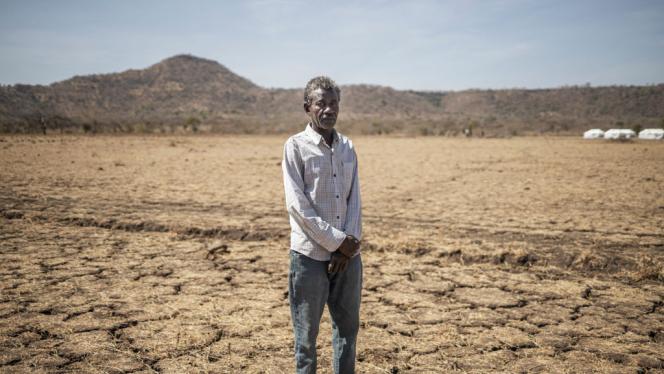Friday 22 November 2024
The plight of Sudanese refugees stranded in Ethiopia

Sudanese refugees stranded in Ethiopia’s Amhara region, face violence, intimidation and critical shortages of food and medicine.
The Sudanese refugees in the Amhara region of Ethiopia have entered their second month of being besieged inside the Olala Forest after fleeing from the Komer and Olala camps due to the threat of attacks from Ethiopian armed militias. The Amhara Region, located in northern Ethiopia and bordering Sudan to the northwest, is one of Ethiopia’s 12 regions, where the federal government is fighting Amhara militias that it once fought in Tigray alongside.
The International Crisis Group reported that “insurgents are contesting federal control in much of the region, posing a challenge to prime minister Abiy Ahmed’s government and Ethiopia’s stability.” Is an extremely volatile region of Ethiopia and is now hosting more than 100,000 Sudanese who have crossed the border into Ethiopia, including 47,000 refugees since fighting broke out in Sudan in April last year, according to the UN High Commissioner for Refugees (UNHCR).
Seven thousand Sudanese refugees in the Komer camp were attacked by armed men, experiencing armed robbery, kidnapping, and rape, which forced them to flee the camp. The Refugee Coordination Committee in the Amhara region issued a statement on 21 April, warning that if their demands for evacuation to safe locations were not met, they would march on foot to the Ethiopian city of Gondar.
On 1 May, due to the lack of response to their appeals and their ongoing suffering, they began to leave the camp. However, three kilometres from the camp, Ethiopian authorities forcibly kept them inside a forested area in Olala, effectively imprisoning them in an open-air prison under extremely harsh humanitarian conditions.
According to a statement from their coordination committee in the Amhara region, the number of refugees in the Olala forests and Komer camp exceeds 6,000, contrary to the 1,000 claimed by the UNHCR. The committee added that the security situation remains dangerous in the camps they fled from due to ongoing military activity between regional forces, the federal army, and militias, along with incidents of murder, rape, kidnapping, armed robbery, and intimidation by unknown armed groups. A significant food shortage remains a major challenge, despite some food deliveries from Sudanese sources, which are insufficient. Local authorities have attempted to force the refugees back to the camps they fled from.
Hunger strike
The besieged refugees began a forced hunger strike on 23 May, leaving the remaining food for over 2,130 children and 327 breastfeeding women. The committee explained that there is not enough medicine even for those with special needs and critical conditions.
A report from the Sudanese Human Rights Observatory, obtained by Geeska, detailed the displacement of approximately 7,000 out of 8,000 Sudanese from the Ethiopian government camp near the Sudanese border, who fled on foot due to attacks. The report highlighted the deteriorating conditions in the camp due to neglect, lack of healthcare, and basic services such as clean drinking water and sufficient food, turning the camp environment into a catastrophic situation. The observatory called on international, regional, and national institutions to address the refugees’ situation in Ethiopia, especially with the increasing armed violence in the regions where Sudanese citizens have sought refuge.
Worsening conditions
According to a statement obtained by Geeska from a refugee in Komer camp—who requested anonymity for security reasons—the security situation in both Komer and Olala is extremely dangerous. The refugees are encamped on the streets and in the open forest, facing severe challenges against beatings and robberies, which even affect those inside the camp.
The health conditions of the refugees are dire, he adds, with the medical clinic no longer functioning, and medical teams only visiting once a week for an hour or two due to security threats. There is fear of a cholera outbreak with the onset of the rainy season, recalling a previous outbreak last fall that worsened health conditions. Many refugees suffer from chronic diseases without access to treatment, alongside the presence of disabled individuals, elderly, pregnant, nursing women, and children.
According to the same source, food rations have reached the camp, but most of those who fled did not receive their share. The besieged in Olala received food seven days ago, but only on the condition that they return to the camp to receive it. They refused the food, fearing imprisonment inside the camp, which is surrounded by federal police, the army, and local Fano movement forces.
They are drinking contaminated water from unsafe sources (the creek), emphasising their demand for evacuation from Ethiopia as a humanitarian necessity. According to statistics from the Refugee Coordination Committee in the Amhara region, 6,080 people, including 2,133 children, 1,017 women, 1,719 men, 1,135 sick individuals, and 76 people with special needs, are trapped in the forest after fleeing Komer and Olala camps.
Conflict in Sudan since mid-April 2023 between the Sudanese army and the Rapid Support Forces has led to the world’s largest displacement crisis, according to the International Organization for Migration. Approximately 10.7 million people (about twice the population of Arizona) have been displaced, including 9 million internally displaced persons and nearly 2 million who have crossed borders.
The Armed Conflict Location & Event Data (ACLED) recorded 15,550 deaths and over 1,400 violent incidents targeting civilians across Sudan since the war began, with 24.8 million people in need of assistance in 2024, according to the latest statistics by the UN Office for the Coordination of Humanitarian Affairs.






